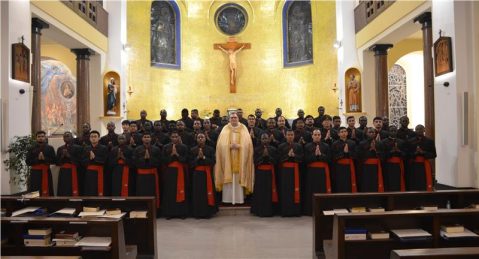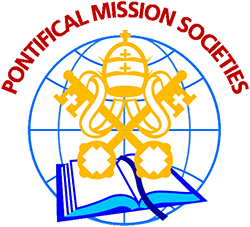Society Of St. Peter: A Seminary as a Witness to the Universality of the Church

Atop Rome’s Janiculum Hill, within the embrace of the Eternal City, the Pontifical Urban College stands as a beacon of the Church’s mission, its gaze set upon the dome of St. Peter’s Basilica. This seminary, a historic cradle of the priesthood since 1627, is not just a witness to the universality of the Catholic Church but an active participant in shaping its future.
Father Armando Nugnes, the rector, describes it as a door to the global Church, “a strategic and fundamental work for the Dicastery for Evangelization,” that oversees the four Pontifical Mission Societies.
Father Armando explains, “This seminary was one of the first significant works of Propaganda Fidei, focusing on formation from the start.” Unlike other institutions, the Urban College was established to educate missionaries from the mission territories themselves. “We help young churches grow by forming those who will, in turn, educate future priests and laypeople, aiding the local church to mature and become self-sufficient.”
Currently, the seminary houses 166 seminarians from mission territories – 60 percent are from Africa, 40 percent from Asia, with a small representation from Oceania and Latin America – undertaking their first cycle of theology or licentiate degrees.
These seminarians are handpicked by their bishops for their scholarly aptitude and missionary zeal. They are the future formators of local seminaries and potential diocesan leaders.
The Urban College has given rise to other institutions, including the colleges of St. Peter and St. Paul, which accommodate priests pursuing studies in Rome. Bishops can request scholarships for seminarians up to the diaconate or for already ordained priests. There is also the Mater Ecclesia College for religious sisters, emphasizing the Dicastery’s priority to promote a female presence in formation houses.
“The University emerged from the Urban College, and both are sustained by the support of the Pontifical Mission Societies,” Father Armando states. The scholarships cover university tuition, residence expenses, meals, and health care, which can be significant due to the challenging hygienic conditions in the seminarians’ home countries. “Each student represents an investment of $13,000 a year,” he reveals. The dioceses are responsible for travel expenses and pocket money for personal needs.
“We are careful not to foster an elite mentality but to offer a concrete experience of the Church’s universality,” he emphasizes. The seminary’s multicultural community speaks multiple languages and practices five different rites. “This year’s 166 seminarians come from 120 dioceses across 35 nations, creating a unique community that embodies the miracle of the Urban College.”
Seminarians from culturally diverse backgrounds, even from warring nations, live as brothers in Rome. “Our formative program is multicultural, and we educate future priests to be men of dialogue, a skill learned through experience, not books,” Father Armando asserts. This experiential learning in dialogue is crucial for their future peacemaking roles in their dioceses.
The sense of responsibility during World Mission Sunday (marked yearly around the world on the second-to-last Sunday of October) in the seminarians’ dioceses is profound. “Christians in these territories don’t see World Mission Sunday as a day to live off others but as a call to think of others,” Father Armando reflects. This is especially true during the Missionary Childhood Association Day, where children in each parish work to help others. “From their youth, they are taught to share what little they have, embodying the spirit of giving.”
Perched above the Vatican, the Pontifical Urban College not only overlooks the physical heart of the Catholic Church but also represents a spiritual and educational summit from which the future leaders of the Church in mission territories are formed, ready to descend into the valleys of the world’s diverse cultures, carrying with them the light of faith, education, and dialogue.
